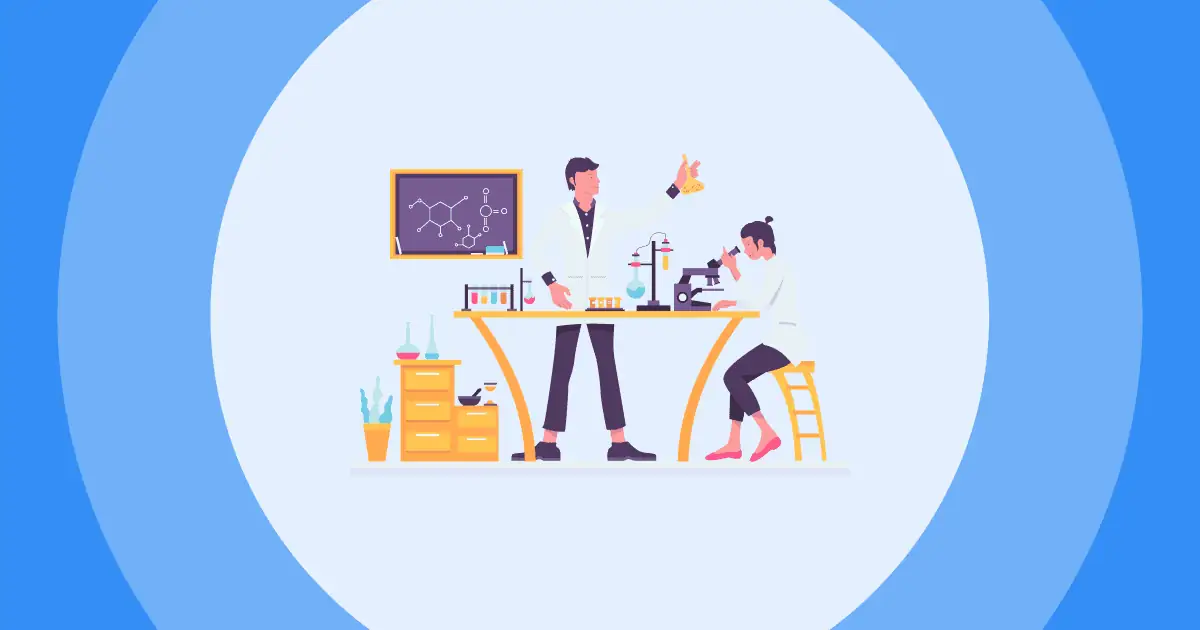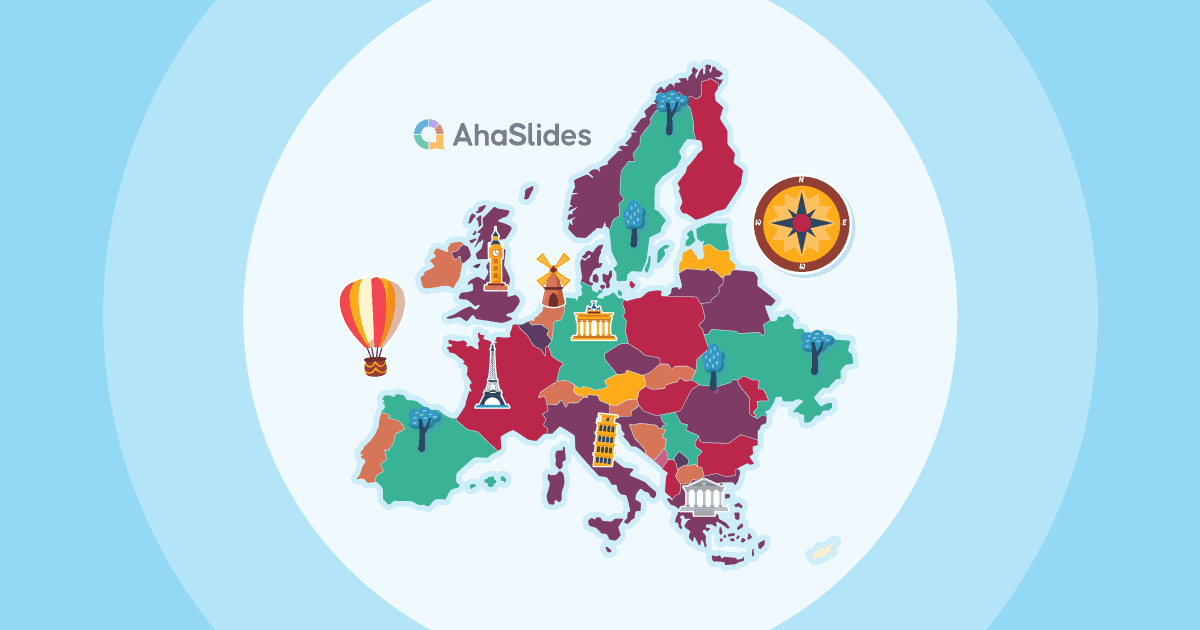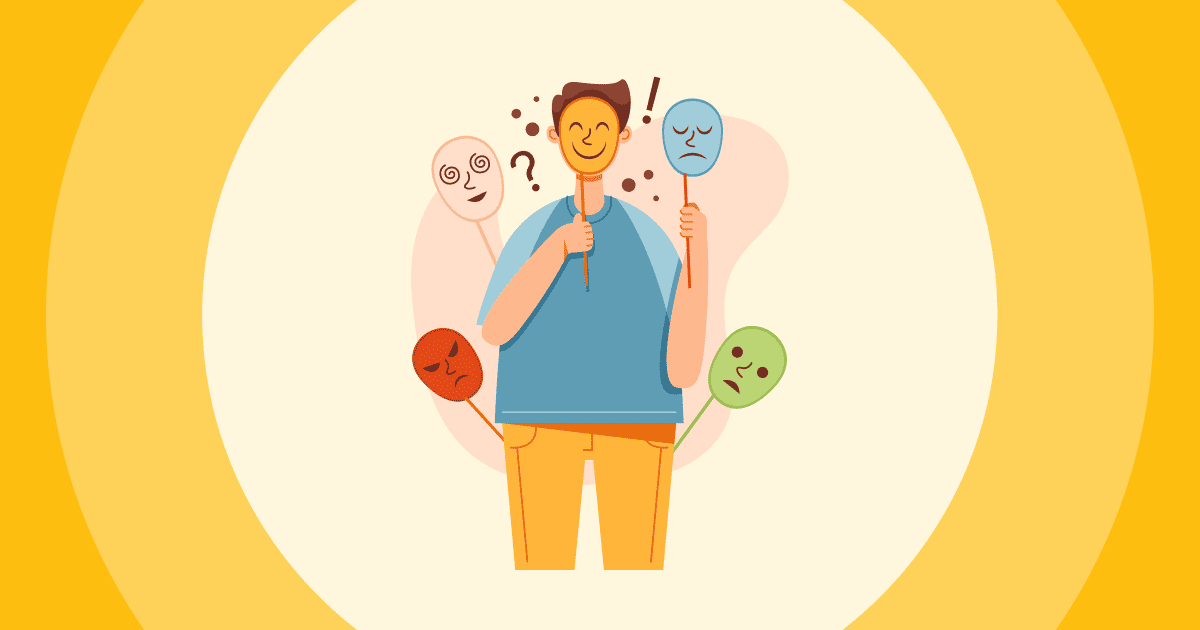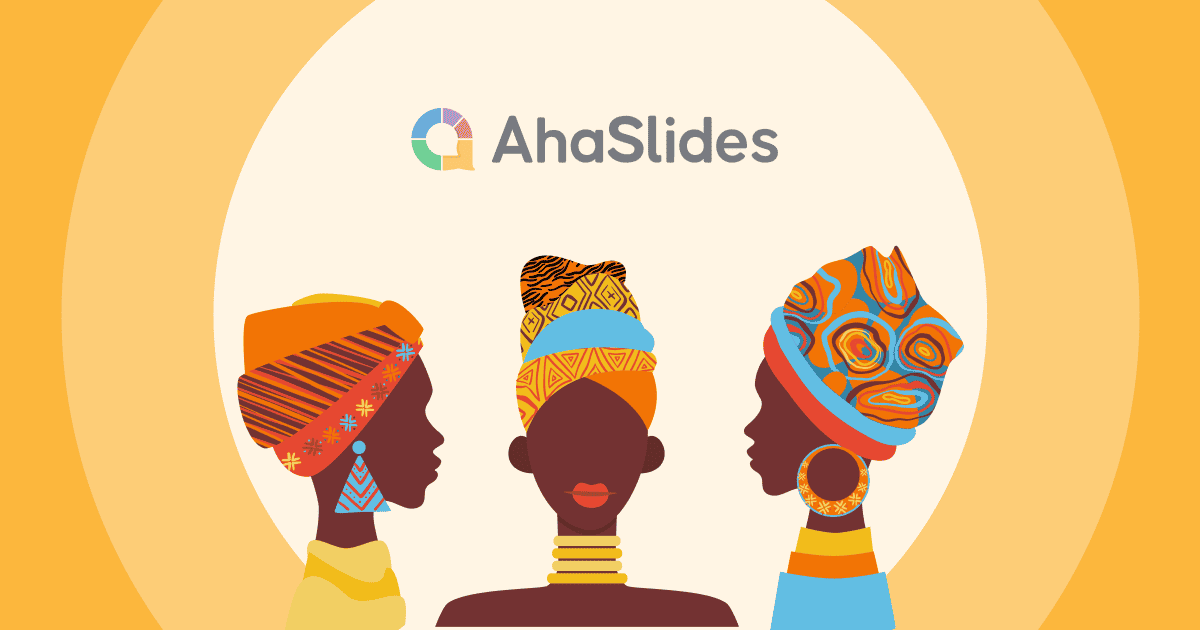This Quiz on Scientists will blow your mind!
This includes 16 easy-to-hard quiz questions on science with answers. Learn about scientists and their inventions, and see how they have helped to make a better world.
Table of Contents:
- Best Quiz on Scientists - Multiple Choice
- Best Quiz on Scientists - Picture Questions
- Best Quiz on Scientists - Ordering Questions
- Key Takeaways
Tips For Better Engagement

Get your Students Engaged
Start meaningful discussion, get useful feedback and educate your students. Sign up to take free AhaSlides template
🚀 Grab Free Quiz☁️
Best Quiz on Scientists - Multiple Choice
Question 1. Who said: “God does not play dice with the universe”?
A. Albert Einstein
B. Nikola Tesla
C. Galileo Galilei
D. Richard Feynman
Answer: A
He believed that every aspect of the universe had a purpose, not merely a random occurrence. Meet the brilliant mind, of Albert Einstein.
Question 2. In which field did Richard Feynman receive the Nobel Prize?
A. Physics
B. Chemistry
C. Biology
D. Literature
Answer: A
Richard Feynman achieved renown for his contributions to the path integral formulation in quantum mechanics, quantum electrodynamics, and the study of the superfluidity of supercooled liquid helium. Additionally, he made significant strides in particle physics by proposing the theory of partons.
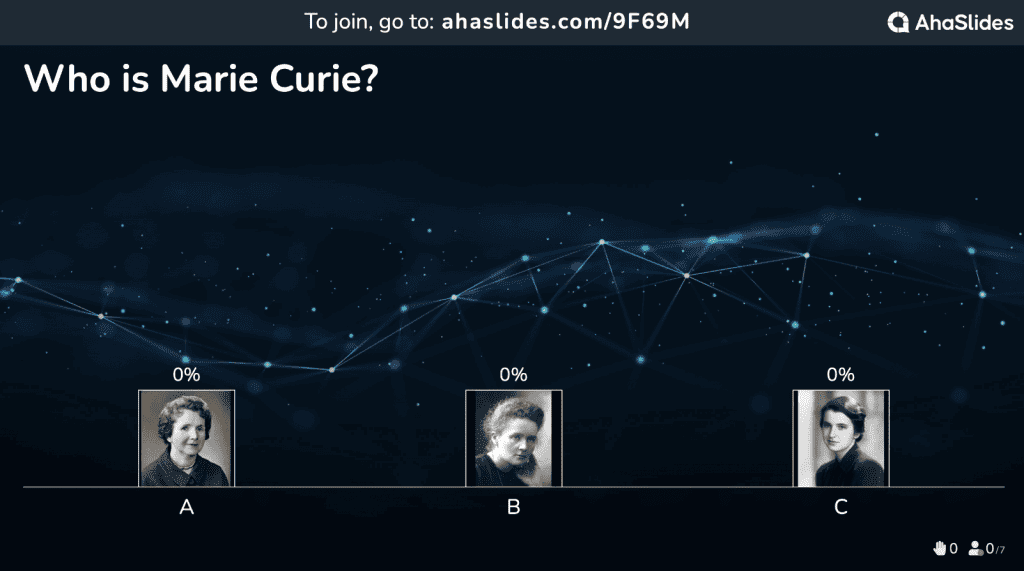
Question 3. Which country is Archimedes from?
A. Russia
B. Egypt
C. Greece
D. Israel
Answer: C
Archimedes of Syracuse is an Ancient Greek mathematician, physicist, engineer, astronomer, and inventor. He holds particular significance due to his revelation regarding the correlation between the surface area and volume of a sphere and its circumscribing cylinder.
Question 4. What is the correct fact about Louis Pasteur - the Father of Microbiology?
A. Never formally engaged in medical studies
B. Of German-Jewish heritage
C. Pioneered the invention of the microscope
D. Silenced by illness
Answer: A
Louis Pasteur never formally studied Medicine. His original field of study was Arts and Mathematics. Later, he also studied Chemistry and Physics. He made important discoveries about different kinds of bacteria and showed that viruses couldn't be seen through a microscope.
Question 5. Who wrote the book "A Brief History of Time"?
A. Nicolaus Copernicus
B. Isaac Newton
C. Stephen Hawking
D. Galileo Galilei
Answer: C
He published this notable work in 1988. This book discusses his groundbreaking theories and predicts the existence of Hawking radiation.
Question 6. Dmitri Ivanovich Mendeleev received the Nobel Prize in chemistry for what invention?
A. Discovery of Methane gas
B. Periodic table of chemical elements
C. Hydra bomb
D. Nuclear energy
Answer: B
Dmitri Mendeleev, a Russian scientist, is credited with creating the first version of the periodic table of chemical elements—a significant milestone in the history of chemistry. He also discovered the concept of critical temperature.
Question 7. Who is known as the "Father of Modern Genetics"?
A. Charles Darwin
B. James Watson
C. Francis Crick
D. Gregor Mendel
Answer: D
Gregor Mendel, despite being a scientist, was also an Augustinian friar, combining his passion for science with his religious vocation. Mendel's groundbreaking work on pea plants, which laid the foundation for modern genetics, went largely unrecognized during his lifetime, only gaining widespread acknowledgment years after his death.
Question 8. Who is the inventor of the light bulb and known as the "Wizard of Menlo Park"?
A. Thomas Edison
B. Alexander Graham Bell
C. Louis Pasteur
D. Nikola Tesla
Answer: A
Edison was born in Milan, Ohio, USA. He is renowned for a multitude of significant inventions, including the electric light bulb, the motion picture camera, the radio wave detector, and the modern electrical power system.
Question 9. Graham Bell is famous for what invention?
A. Electric lamp
B. Telephone
C. Electric fan
D. Computer
Answer: B
The first words Alexander Graham Bell spoke over the telephone were, "Mr. Watson, come here, I want to see you."
Question 10. Which scientist below had their picture pasted in the classroom by Albert Einstein?
A. Galileo Galilei
B. Aristotle
C. Michael Faraday
D. Pythagoras
Answer: C
Albert Einstein passed a picture of Faraday in his classroom along with pictures of Isaac Newton and James Clerk Maxwell.
Best Quiz on Scientists - Picture Questions
Question 11-15: Guess the picture quiz! Who is he or she? Match the picture with its correct name
| Picture | Name of the scientist |
11.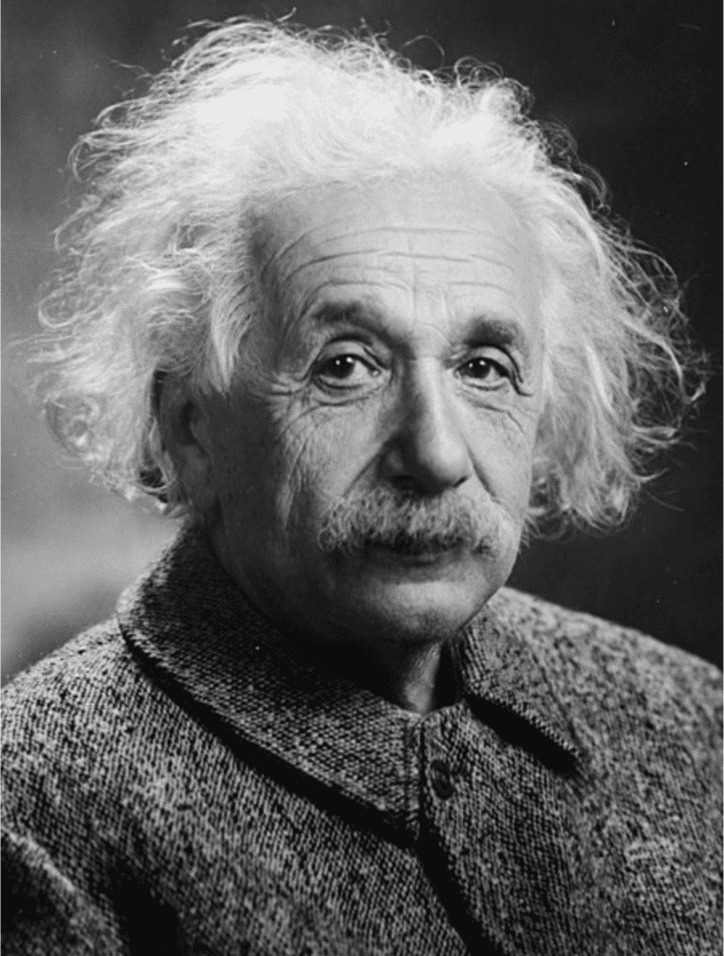 | A. Marie Curie |
12.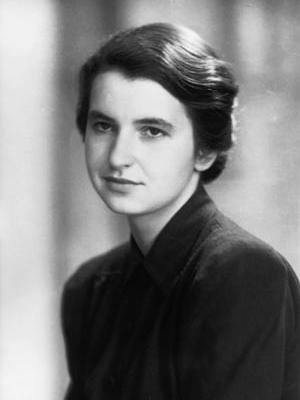 | B. Rachel Carson |
13. | C. Albert Einstein |
14.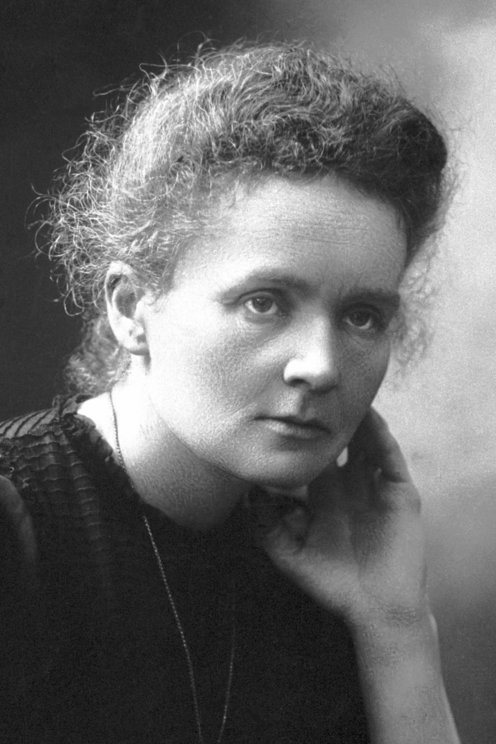 | D. APJ Abdul Kalam |
15.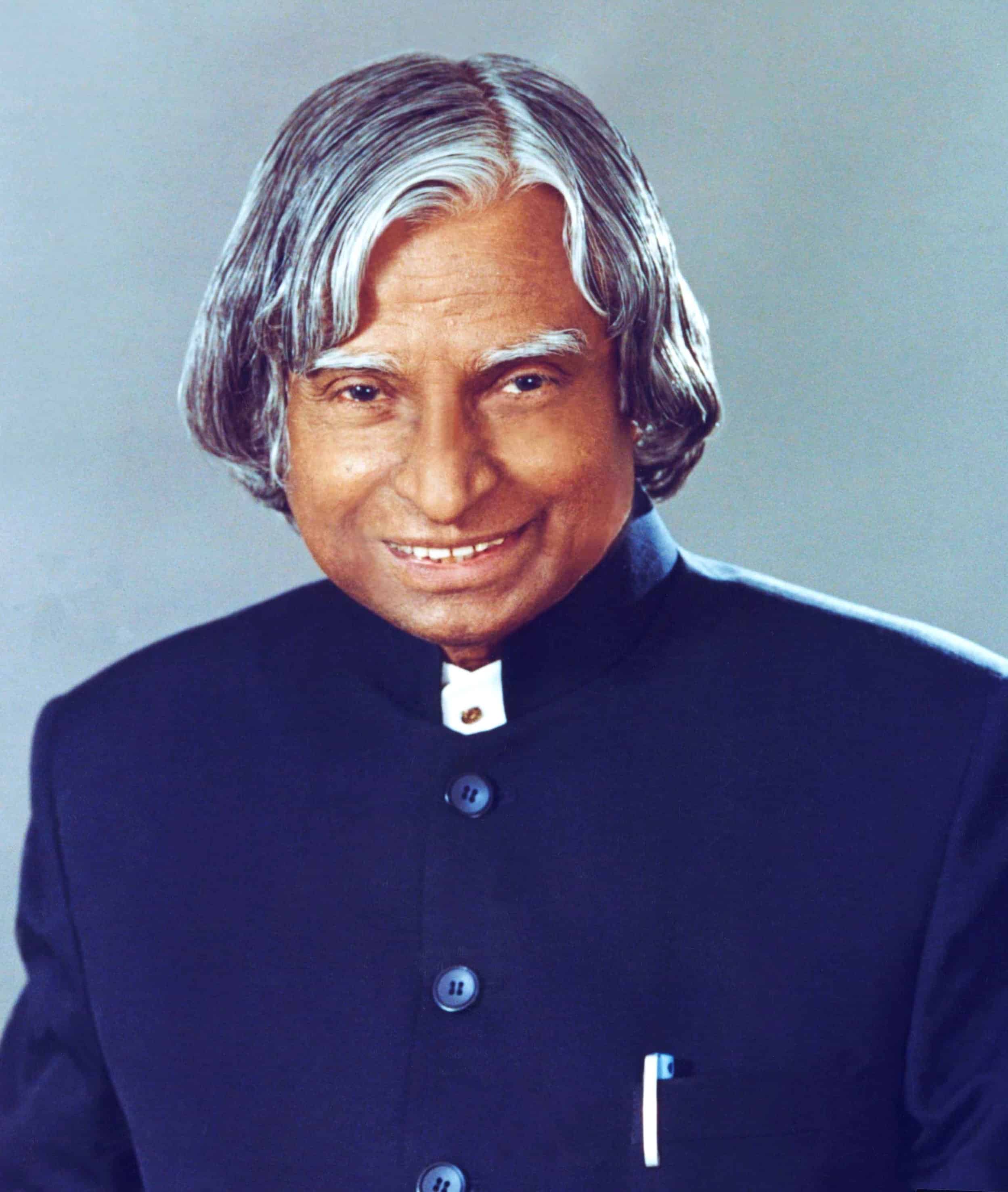 | E. Rosalind Franklin |
Answer: 11- C, 12- E, 13- B, 14 - A, 15- D
- APJ Abdul Kalam is one of the most famous Indian scientists in the modern day. He is known for his greatest contribution to the development of missiles goes by the name Agni and Prithv, and served as the 11th president of India from 2002 to 2007.
- There are many famous women scientists who helped change the world such as Rosalind Franklin (who discovered the structure of DNA), Rachel Carson (hero of sustainability), and Marie Curie (who discovered polonium and radium).
Best Quiz on Scientists - Ordering Questions
Question 16: Select the correct order of a series of events in science according to its time of occurrence.
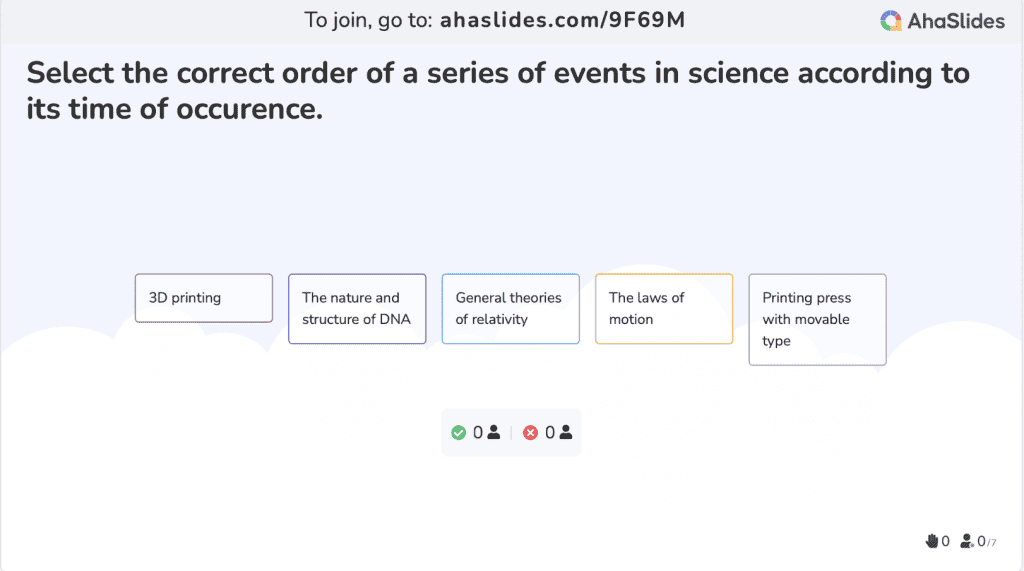
A. The commercially viable lightbulb (Thomas Edison)
B. General theories of relativity (Albert Einstein)
C. The nature and structure of DNA (Watson, Crick, and Franklin)
D. The laws of motion (Issac Newton)
E. Printing press With movable type (Johannes Gutenberg)
F. Stereolithography, also known as 3D printing (Charles Hull)
Answer: Printing press with movable type (1439) --> The laws of motion (1687) --> General theories of relativity (1915) --> The nature and structure of DNA (1953) --> Stereolithography (1983)
Key Takeaways
💡You can enhance your presentation with additional gamified-based elements from AhaSlides and innovative suggestions from its new feature, AI slide generator.
Ref: Britannica
